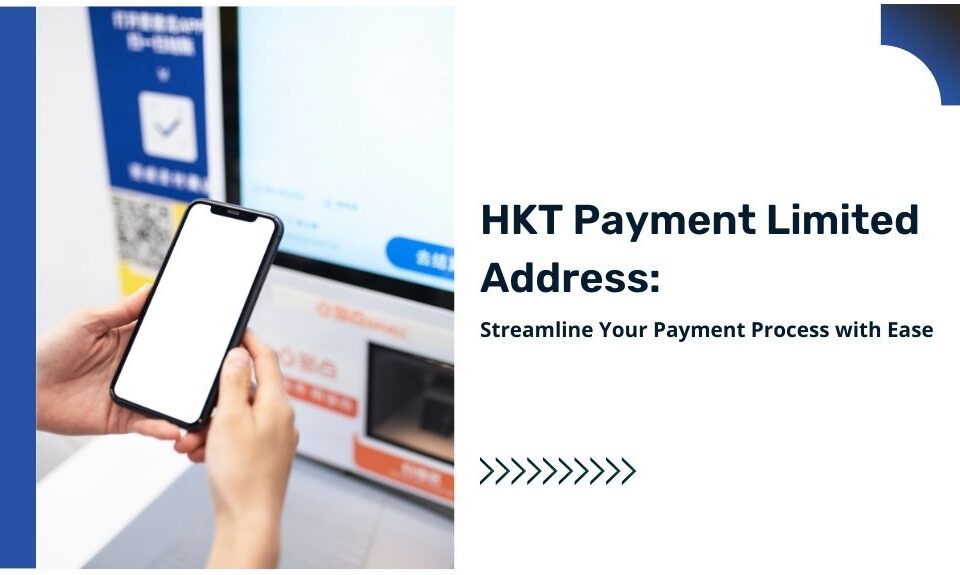Mastering Debt Collection: The Ultimate List of Merchant Accounts for Agencies

Top-Rated Credit Card Processing Solutions for Churches
January 2, 2024
9 Best Merchant Services of January 2024
January 4, 2024Are you tired of struggling with debt collection as an agency? Imagine a world where managing merchant accounts becomes a breeze, empowering you to focus on growing your business instead. Well, you’re in luck! In this blog, we have curated the ultimate list of merchant accounts specifically designed for agencies, so you can master debt collection like a pro.
In this blog, we’ll not only reveal the top merchant account providers but also shed light on their key features, benefits, and pricing structures. You’ll discover expert tips on how to choose the right merchant account for your agency, ensuring seamless payment processing and maximum debt recovery.
1. Introduction to Debt Collection Agencies
1.1 What is a Debt Collection Agency?
A debt collection agency is a business entity that specializes in collecting outstanding debts on behalf of creditors. These agencies typically operate on a contingency fee basis, meaning they only get paid if they successfully recover the debt. Debt collection agencies may work with various types of unpaid debts, such as credit card debt, medical bills, student loans, or personal loans.
1.2 The Importance of Debt Collection Agencies
Debt collection agencies play a crucial role in the financial ecosystem by helping businesses and individuals recover money owed to them. For businesses, timely debt collection ensures a healthy cash flow and reduces the risk of bad debt write-offs. On the other hand, debt collection agencies help individuals recover money owed to them, providing a sense of justice and relieving financial burdens.
1.3 The Fair Debt Collection Practices Act (FDCPA)
The Fair Debt Collection Practices Act (FDCPA) is a federal law that sets guidelines for debt collection agencies’ behavior. It aims to protect consumers from unfair, deceptive, and abusive practices. The FDCPA regulates what debt collection agencies can and cannot do when attempting to collect a debt. It ensures that consumers are treated fairly and provided with certain rights during the debt collection process.
1.4 Finding the Right Merchant Account for Debt Collection Agencies
One crucial aspect of operating a debt collection agency is having a reliable and secure merchant account. Merchant accounts enable businesses to process credit card payments from debtors. However, due to the high-risk nature of the debt collection industry, finding suitable merchant account services can be challenging.
Here are some key factors to consider when looking for a merchant account for your debt collection agency:
1.4.1 High-Risk Merchant Services
Given the nature of the debt collection business, it is categorized as high-risk by most traditional financial institutions. Therefore, it’s essential to find merchant account providers that specialize in working with high-risk industries like debt collection. These specialized providers understand the unique challenges and potential risks associated with debt collection agencies.
1.4.2 Application Process and Approval Time
When selecting a merchant account service, consider the application process and approval time. Opt for a provider that offers a streamlined application process with minimal paperwork. Fast approval is crucial for debt collection agencies to start accepting credit card payments promptly.
2. Understanding Merchant Accounts for Debt Collection Agencies
In the world of debt collection, having a reliable and efficient payment processing system is crucial for success. This section will provide an in-depth understanding of merchant accounts specifically designed for debt collection agencies. By familiarizing yourself with the ins and outs of these accounts, you can streamline your payment processes, improve cash flow, and ensure compliance with industry regulations.
1. What is a Merchant Account?
A merchant account is a type of bank account that allows businesses to accept electronic payments, such as credit and debit card transactions, from their customers. It serves as an intermediary between the business, the customer, and the payment processor. Merchant accounts play a vital role in streamlining payment transactions and providing a seamless experience for debt collection agencies and their clients.
2. The Importance of Merchant Accounts for Debt Collection Agencies
Debt collection agencies often deal with higher levels of risk due to the nature of their business. Therefore, having a specialized merchant account that understands and caters to the unique needs of the industry is essential. These accounts offer features that mitigate risk, provide secure payment processing solutions, and ensure compliance with relevant regulations.
3. Key Features of Merchant Accounts for Debt Collection Agencies
High-Risk Expertise: Merchant account providers with experience in the debt collection industry will have a thorough understanding of the specific challenges and requirements faced by agencies. They can offer tailored solutions to mitigate risks associated with chargebacks and fraud.
Fast Approval: Unlike traditional merchant accounts, specialized accounts for debt collection agencies often come with faster approval times. This allows you to start accepting payments promptly and keep your cash flow intact.
Payment Processing Options: A reputable merchant account service will offer a wide range of payment processing options, including credit cards, debit cards, and electronic check processing. This flexibility ensures that you can accommodate various payment preferences and maximize your collections.
Compliance Assistance: The debt collection industry is highly regulated, and non-compliance can lead to severe consequences. Look for a merchant account provider that offers compliance assistance to help you navigate the complexities of laws such as the Fair Debt Collection Practices Act (FDCPA) and regulations set by the Federal Trade Commission (FTC).
4. Finding the Right Merchant Account for Your Debt Collection Agency
When selecting a merchant account for your agency, consider the following factors:
Reputation: Choose a provider with a proven track record in the industry and positive reviews from other debt collection agencies.
3. Benefits of Merchant Accounts for Debt Collection Agencies

Debt collection agencies play a crucial role in helping businesses and individuals recover unpaid debts. In order to effectively carry out their operations, these agencies need reliable and secure payment processing systems. This is where merchant accounts come into the picture. Let’s explore the benefits that merchant accounts offer to debt collection agencies.
1. Expanded Payment Options:
Merchant accounts enable debt collection agencies to accept various payment options. This includes credit card payments, debit card payments, and even electronic payment processing. By providing multiple payment methods, debt collection agencies can cater to a wider range of clients and customers, enhancing convenience and improving their chances of successful debt recovery.
2. Faster Payment Processing:
Efficiency is key in the debt collection industry, and merchant accounts help streamline payment processing. With a dedicated merchant account, agencies can process credit card and debit card payments quickly and securely. This ensures faster payment collection and minimizes delays, allowing agencies to handle a larger volume of transactions in a shorter span of time.
3. Secure Transactions:
Security is of utmost importance when it comes to financial transactions, especially in the debt collection industry. Merchant accounts provide robust security measures to protect both the agency and its clients. With advanced encryption protocols and fraud detection systems, these accounts safeguard sensitive customer data, mitigate the risk of fraudulent transactions, and ensure compliance with industry regulations.
4. Improved Cash Flow:
By utilizing a merchant account, debt collection agencies can enjoy improved cash flow. The funds from credit card and debit card payments are deposited directly into the agency’s bank account, reducing the time and effort required for manual payment reconciliation. This enables agencies to access their funds more quickly, ensuring a smoother and more consistent cash flow.
5. Enhanced Customer Service:
Customer service is a vital component of any business, and debt collection agencies are no exception. With merchant accounts, agencies can provide more flexible payment options to their clients, allowing them to choose the method that suits them best. This level of convenience enhances the customer experience and fosters stronger relationships between agencies and their clients.
💡 key Takeaway: Merchant accounts offer numerous benefits to debt collection agencies, including expanded payment options, faster payment processing, secure transactions, improved cash flow, and enhanced customer service. These accounts play a vital role in ensuring efficient and effective debt collection operations.
4. Merchant Account Features and Services for Debt Collection Agencies
When it comes to operating a debt collection agency, having a reliable and secure merchant account is crucial. A merchant account enables you to accept credit card and debit card payments from your clients, making it easier for them to settle their debts. However, not all merchant accounts are created equal, especially in the debt collection industry. In this section, we will explore the essential features and services that debt collection agencies should look for when choosing a merchant account provider.
1. High-Risk Merchant Account Services:
Debt collection agencies are considered high-risk businesses due to the nature of their operations. Therefore, it is important to find a merchant account provider that specializes in serving high-risk industries. Look for providers that offer specific solutions tailored to the unique needs and challenges of debt collection agencies. These specialized services will not only ensure compliance with industry regulations but also provide the necessary support for smooth payment processing.
2. Fast Approval and Onboarding Process:
Time is of the essence in the debt collection industry, and delays in getting approved for a merchant account can hinder your operations. Look for providers that offer fast approval and onboarding processes. This will allow you to start accepting payments quickly and efficiently, without any unnecessary delays or red tape.
3. Comprehensive Payment Processing Solutions:
A good merchant account should offer a range of payment processing solutions to suit the needs of your clients. Look for providers that support various payment methods, including credit cards, debit cards, and electronic fund transfers. This flexibility will enable your clients to choose their preferred payment method, making it more convenient for them to settle their debts.
4. Advanced Fraud Prevention:
As a debt collection agency, you are at a higher risk of fraudulent transactions. Protecting your business and your clients’ sensitive information should be a top priority. Therefore, choose a merchant account provider that offers advanced fraud prevention measures. Look for features such as real-time monitoring, secure encryption protocols, and anti-fraud tools to minimize the risk of fraudulent activities.
5. Dedicated Customer Service:
Having reliable customer service is crucial for resolving any issues or concerns that may arise during payment processing. Look for a merchant account provider that offers dedicated customer support specifically for debt collection agencies. Having access to knowledgeable and responsive customer service representatives can make a significant difference in ensuring smooth operations and resolving any payment-related challenges promptly.
💡 key Takeaway: When selecting a merchant account provider for your debt collection agency, prioritize high-risk merchant account services, fast approval processes, comprehensive payment.
5. Regulatory Compliance for Debt Collection Agencies
When it comes to debt collection agencies, regulatory compliance is of utmost importance. Debt collection practices are heavily regulated to ensure fair treatment of consumers and to prevent any form of harassment or abuse. As a debt collection agency, it is crucial to understand and comply with the relevant laws and regulations to avoid penalties and maintain a positive reputation in the industry.
1. Familiarize Yourself with the Fair Debt Collection Practices Act (FDCPA)
The Fair Debt Collection Practices Act (FDCPA) is a federal law that outlines guidelines for debt collectors in the United States. It sets strict rules on how debt collection agencies can communicate with consumers, what they can say, and when they can contact them. Familiarize yourself with the provisions of the FDCPA to ensure compliance and protect the rights of consumers.
2. Stay Informed about State-Specific Laws
In addition to federal regulations, debt collection agencies must also comply with state-specific laws. Each state may have its own set of rules governing debt collection practices, including restrictions on collection methods, time limitations for legal action, and licensing requirements. Stay up to date with the laws in the states where you operate to avoid any compliance issues.
3. Implement Robust Data Security Measures
Debt collection agencies deal with sensitive consumer information, making data security a top priority. Implement robust data security measures to protect the personal and financial data of consumers. Encryption, secure storage systems, and regular security audits should be part of your information security strategy.
4. Train Your Employees on Compliance Practices
Properly train your employees on compliance practices to ensure everyone in your organization understands their responsibilities and obligations. Provide comprehensive training programs that cover the laws and regulations governing debt collection practices. Regularly update training materials to reflect any changes in the regulatory landscape.
5. Keep Accurate and Detailed Records
Maintaining accurate and detailed records is essential for regulatory compliance. Keep track of all communication with consumers, including phone calls, emails, and letters. Document the dates, times, parties involved, and the nature of the conversation. These records can serve as evidence of compliance in case of any disputes or investigations.
6. Partner with a Trusted Payment Processor
To ensure compliance with payment processing regulations, it is vital to partner with a trusted and reliable payment processor. Look for a payment processor experienced in servicing high-risk industries, such as debt collection. They should have expertise in handling the unique needs and challenges that come with debt collection merchant accounts.
6. Challenges Faced by Debt Collection Agencies in Obtaining Merchant Accounts

Debt collection agencies play a crucial role in the financial ecosystem, helping businesses recover unpaid debts and maintaining the flow of funds. However, these agencies often face unique challenges when it comes to obtaining merchant accounts. In this section, we will explore the key hurdles that debt collection agencies encounter and provide insights on how to address them effectively.
1. High-Risk Classification: Debt collection agencies are often classified as high-risk businesses by merchant account providers. This categorization is primarily due to the higher likelihood of chargebacks and legal issues associated with the industry. As a result, many traditional merchant account providers are hesitant to offer their services to debt collection agencies.
2. Compliance with Regulations: The debt collection industry operates under strict regulations, including the Fair Debt Collection Practices Act (FDCPA) and guidelines set by the Federal Trade Commission (FTC). Merchant account providers scrutinize debt collection agencies to ensure compliance with these regulations. This level of scrutiny can pose challenges during the application process.
3. Limited Options for Payment Processing: Due to their high-risk status, debt collection agencies often face limited options when it comes to payment processing. Many mainstream payment processors exclude them from their services, making it difficult for agencies to find a suitable payment processing solution.
4. Higher Fees: Obtaining a merchant account as a debt collection agency typically comes with higher fees compared to businesses in low-risk industries. The increased fees are a reflection of the perceived risk associated with the collection agency business model. It’s important for agencies to factor in these costs when considering their financial management strategies.
5. Customer Service Requirements: Reliable customer service is vital for maintaining positive relationships with customers and reducing the number of disputes and chargebacks. Merchant account providers consider the level of customer service provided by debt collection agencies when evaluating their suitability for a merchant account.
6. Quick Approval Process: Debt collection agencies often rely on timely payment processing to maintain their operations smoothly. However, some merchant account providers may have a lengthy approval process. Finding a payment processor that offers fast approval can help ensure uninterrupted cash flow.
💡 key Takeaway: Debt collection agencies face unique challenges in obtaining merchant accounts due to their high-risk classification, regulatory compliance requirements, limited payment processing options, higher fees, customer service expectations, and the need for a quick approval process. It is crucial for agencies to work with specialized payment processors who understand their industry and can provide tailored solutions to overcome these obstacles.
7. Tips for Improving Merchant Account Approval for Debt Collection Agencies
Obtaining a merchant account for your debt collection agency can be a challenging process, especially considering the high-risk nature of the industry. However, with some strategic steps and preparation, you can increase your chances of getting approved. Here are some valuable tips to improve your merchant account approval:
1. Research High-Risk Merchant Account Providers:
Start by researching merchant account providers that specialize in high-risk industries, such as debt collection agencies. Look for providers with experience and a solid reputation in serving businesses in your industry. Consider factors like their approval rates, pricing, customer reviews, and the range of payment options they offer.
2. Understand the Requirements:
Before applying for a merchant account, familiarize yourself with the specific requirements and regulations for debt collection agencies. Be prepared to provide detailed information about your business, including your years of operation, your client base, and any relevant industry certifications or licenses you hold. Understanding these requirements will allow you to gather the necessary documentation and present your business in the best possible light.
3. Strengthen Your Credit Profile:
A strong credit profile is essential for improving your chances of approval. Request your business credit report and ensure it accurately reflects your financial standing. Address any outstanding debts, resolve any issues, and maintain good credit practices moving forward. By demonstrating financial responsibility, you’ll instill confidence in the merchant account provider.
4. Maintain Adequate Cash Reserves:
Having sufficient cash reserves shows your ability to cover potential chargebacks and unforeseen circumstances. Merchant account providers often require a reserve account to mitigate risk. Aim to maintain a healthy cash flow and reserve fund to demonstrate your financial stability and reliability.
5. Provide Comprehensive Documentation:
Prepare a detailed business plan that outlines your company’s mission, strategies, target market, and growth projections. Include financial statements such as balance sheets, cash flow statements, and profit and loss statements. Providing comprehensive documentation demonstrates your professionalism and preparedness.
6. Establish Effective Payment Processing Procedures:
Implement strong payment processing procedures to minimize risk. This includes verifying customer identities, ensuring secure transactions, and adhering to data security standards. Highlight these procedures in your application to showcase your commitment to protecting both your clients and your customers’ information.
Conclusion
In conclusion, mastering debt collection and finding the right merchant account for your agency is crucial for your business’s success. By understanding the different types of merchant accounts available, you can make informed decisions and maximize your collections. Whether you are a small agency or a large one, there is a merchant account out there that suits your needs. One key factor to consider is the integration options offered by the merchant account provider. Look for a provider that integrates seamlessly with your current systems, whether it’s your billing software or your CRM. This will save you time and effort in managing your collections process. Another important aspect to consider is the fee structure of the merchant account provider.




